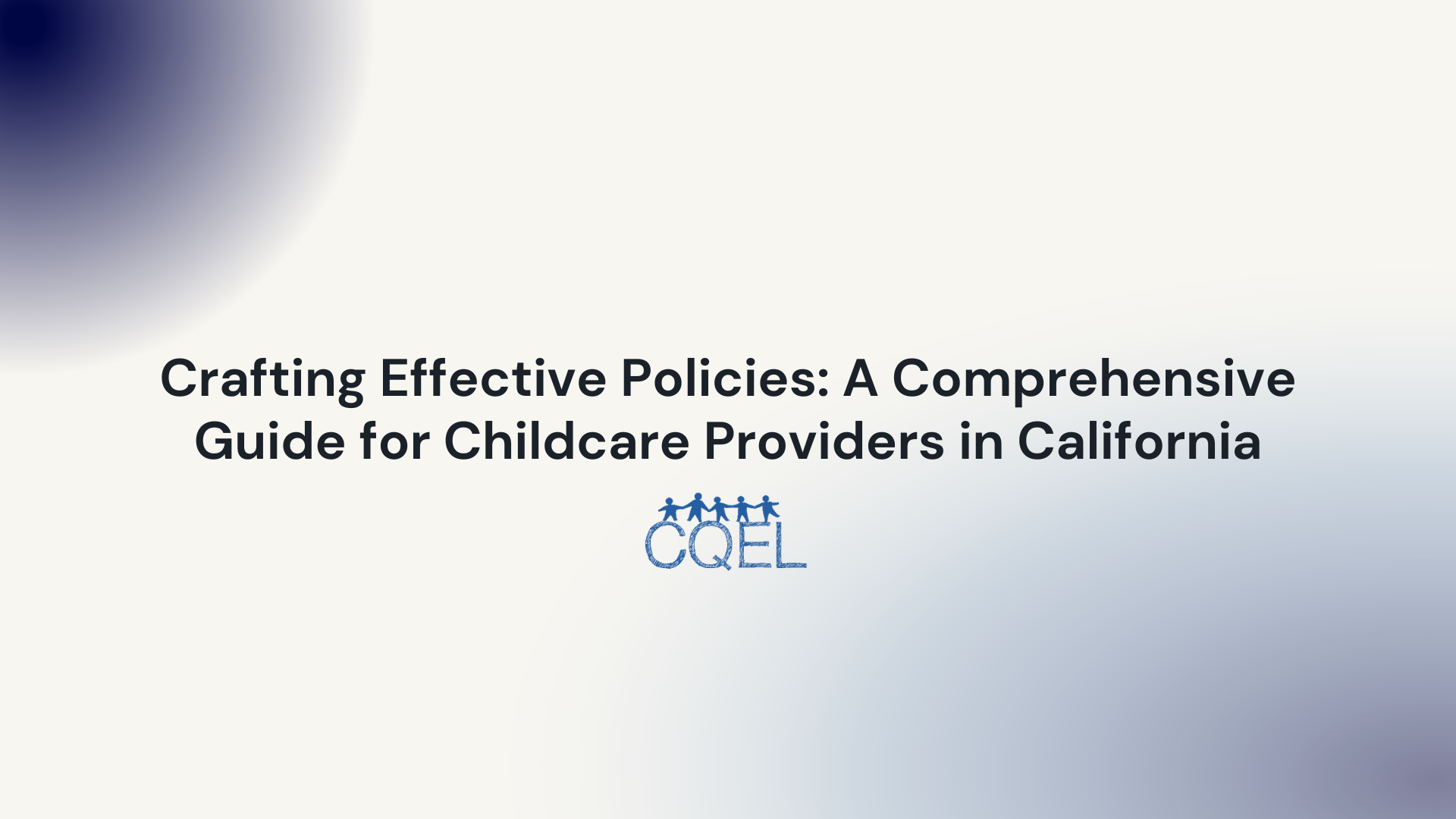Crafting Effective Policies: A Comprehensive Guide for Childcare Providers in California
As a childcare provider in California, understanding the nuances of writing a solid policy is crucial. This guide covers all the key aspects aspiring childcare providers in California need to know.

The Importance of Clear Policies
An effective policy is an essential tool for any childcare provider. It provides clear guidelines on various aspects of the daycare's operations, from enrollment procedures and payment terms to health and safety practices. As a childcare provider in California, understanding the nuances of writing a solid policy is crucial. This guide aims to cover all the key aspects that aspiring childcare providers in California need to consider when formulating their policies.
Identifying Policy Areas: Covering All Bases
The first step in crafting effective policies involves identifying the areas that need policy coverage. Typically, these include enrollment procedures, payment and fee structures, operating hours, sick-child policy, discipline methods, emergency procedures, and health and safety measures. Tools such as NAEYC's Public Policy resources can provide comprehensive guidance on critical policy areas.
Drafting the Policy: Clarity and Comprehensiveness
When drafting the policy, aim for clarity and comprehensiveness. Use straightforward language to ensure understanding and ensure all aspects of a policy area are covered. For instance, the payment policy should detail the fees, due dates, late fee penalties, and acceptable payment methods. Using online tools like Grammarly can aid in creating clear and grammatically correct policies.
Legal Considerations: Staying within the Law
The state of California has specific laws and regulations regarding childcare operations. Ensure your policies adhere to these legal requirements. These regulations cover areas such as health and safety, staff-child ratios, and reporting procedures. Consult the California Department of Social Services for a comprehensive list of rules and regulations.
Inclusion and Diversity: Embracing All Children
Inclusion and diversity should be at the heart of any childcare center policy. Your policies should ensure all children, regardless of their background or abilities, are welcome and accommodated. Consider policies on handling children with special needs, cultural and language inclusivity, and non-discrimination. Resources like the Inclusion Lab can provide valuable insights on inclusive practices.
Communication: Ensuring Transparency with Parents
It's essential that your policies are effectively communicated to parents. Make sure they receive a copy upon enrollment and that any changes are promptly communicated. Open and honest communication builds trust and avoids future conflicts. Platforms such as Remind can help maintain efficient communication channels with parents.
Periodic Review: Keeping Your Policies Relevant
Policies should not be static; they should evolve with the changing needs of your childcare center. Review your policies annually or whenever significant changes occur in your operation or state regulations. Consider feedback from parents and staff during these reviews.
Crafting Policies for Success
In conclusion, crafting effective policies is a careful balance of clarity, comprehensiveness, legality, and inclusivity. It forms the backbone of smooth operations, fosters trust with parents, and helps to create a safe, nurturing environment for the children in your care. By taking a strategic and considered approach to policy development, you can set your childcare center up for success.
